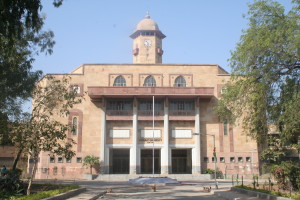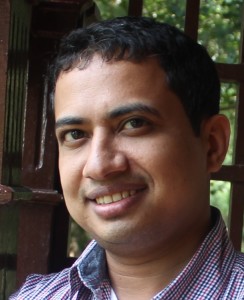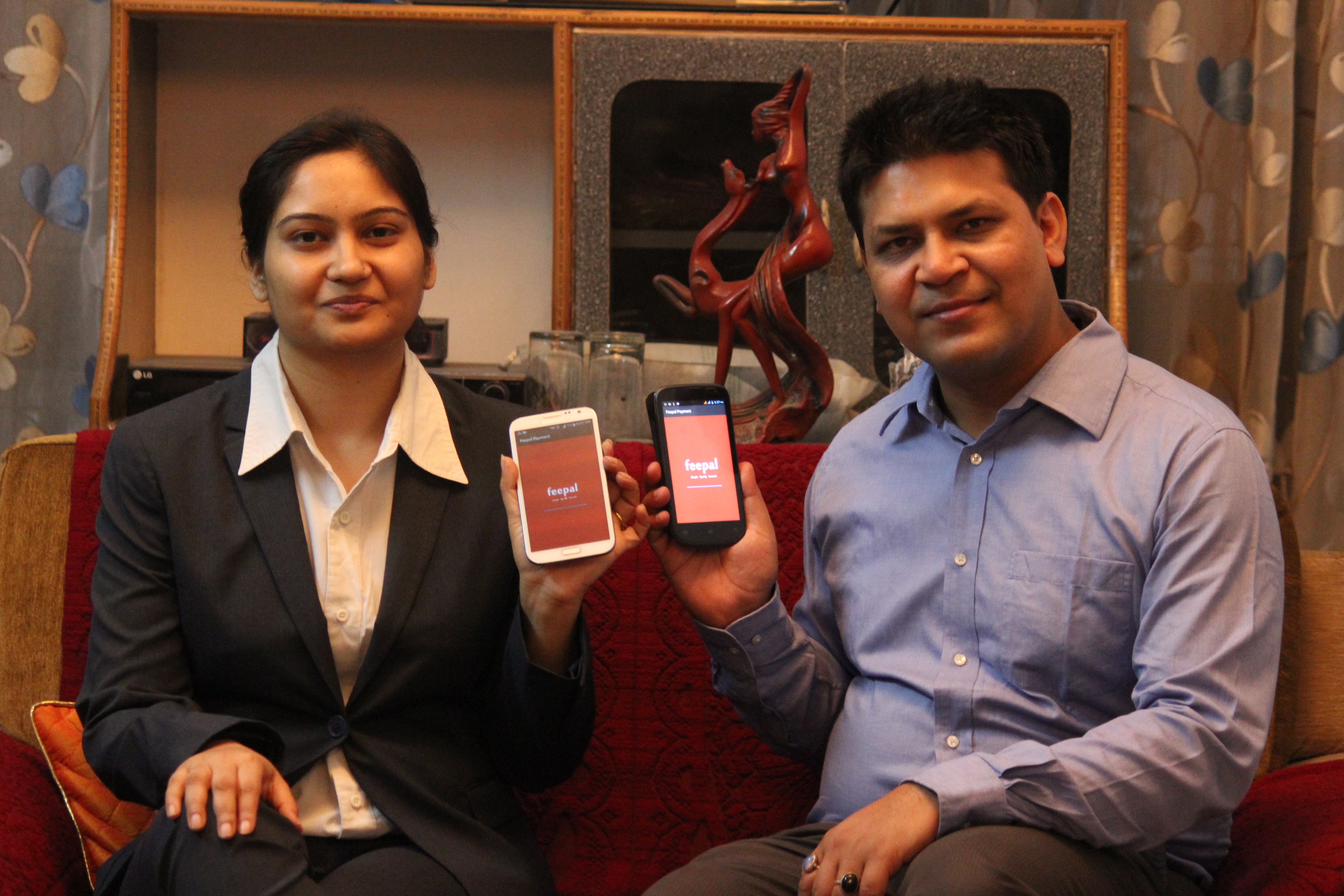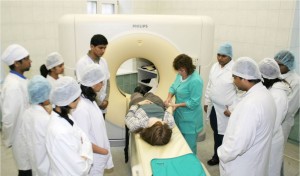Ankur Sharma, owner of White Sepal Services opines that despite being one of the largest education markets worldwide,the level of automation and e-commerce penetration is abysmally low in the education sector. Feepal firmly believes that with the effective use of technology, the present inefficient mechanism of fee mobilization could be replaced by automated, simple yet powerful and cost effective system.
Give us the brief of various reasons behind starting the venture.
India is one of the world’s largest education markets. In monetary terms, around Rs 3 lakh crore annual transaction happens in the education sector. Ironically, unlike sectors like retail, travel, entertainment and food, the level of automation and e-commerce penetration is abysmally low in this sector. It’s astonishing that even the most renowned universities, colleges and schools in India are still collecting their fee in physical mode wherein the payers have to face issues like geographical constraints to travel to institutes, have to stand in long queues and encounter slow and manual accounting. Thousands of schools, colleges, universities and coaching classes across the country have similar arrangements for fee mobilization. Millions of payers have to face hassle in the current scenario.
Through Feepal (web portal or Android App) the payers can pay fee to our partner educational institutes in just 30 seconds from anywhere and anytime. Interestingly, for the partner educational institutes, this technological upgradation for fee mobilization is free of cost.
What are the various difficulties/ hurdles encountered in doing business on ground level?
Feepal is driven by first generation entrepreneurs and e-commerce businesses like this require a threshold scale to achieve break even. Therefore, the first hurdle is to generate working capital from the revenues.
The other hurdles is trust deficit, inertia and status quo in the educational institutes. Many educational institutes appreciate the value addition and technological improvement that Feepal brings, but are reluctant to adopt it because of trust deficit and the conventional approach of the decision makers; but now with about 100 educational institutes in our kitty the trust deficit factor is gradually getting diluted.
What is the market size of the services offered by you in India at present?
21st century India is bestowed with favorable demographic dividend. As per census 2011 the population below 25 years of age in India is about 55 crore. With literacy rate of 74%, there are around 35 to 40 crore students in various educational institutes across the country. About 13 crore of these are in urban areas where internet penetration is high. This is our target market, which includes students in preschools, schools, colleges and coaching classes.
In India, there are about 1.4 million schools, and 50 thousand institutes of these offer higher education. In terms of volume the size of Indian education market is about 3 lakh crore per year. We want to tap this market.
What are the major benefits for organisations / Individuals adopting your solutions?
As far as organizations are concerned, we work as the extended technical department for our partner institutes. Our partner institutes get additional e-commerce (web portal) and m-commerce (Android App) channels to mobilize their revenues. We are trying to provide an umbrella solution in terms of online payments for educational institutes. Thus, besides the online fee management system, we also facilitate them to sell their admissions form online and take their book store online. Feepal is a smart portal in which late fee and fines can be customized as per the need of the respective institutes. For account departments of institutes, we have a dashboard that helps them to reconcile the online payments. All these offerings are at absolutely free of cost for the institutes. We also provide customer support to the payers on behalf of the educational institute.
For individual payers,our main offerings are convenience and world class experience for paying fee. We empower the payers to pay the fee in just 30 seconds from anywhere and anytime, even on holidays. We have mitigated space and time constraints for paying fee.
What is the vision of your company for next two years?
Our operations started in July 2014, and in just three quarters we are now online payment partners for more than 100 institutes located in 11 cities across the country. In this short span of time we have successfully done the gross transactions worth Rs 3 crore on Feepal. At the current pace we believe in next two quarters we will successfully complete aggregated gross transactions worth 10 crore on Feepal. Once we reach this benchmark we will be actively looking for funding partners to scale up the business in different geographies. We would also like to have our footprint in the international markets. There are various international markets which are relatively less mature vis-à-vis India in terms of automation in education. They will be our potential targets apart from the domestic market.
In terms of technology and product, we would like to move beyond the core fee aggregation and would also like to sell other education related products and services on our portal such as summer camps for students, school uniforms, online courses, online test series etc.
What are the various methods you are using to increase the visibility of your organisation?
Presently, we have channelized all our limited resources for institute acquisition. We are using multiple sales channels for the same. For B2C visibility, we leverage upon the networks of educational institutes. We ensure our visibility in educational institutes on occasions like Parent Teacher Meet, Annual Days, College Fests etc.
How you can differentiate your services from competitors?
Our competitors are banks and payment gateways. In the context of education sector, we have a clear edge over both these competitors. Bank and gateways have online payment products but they are generic in nature. Feepal as a product is designed keeping in mind the need of the educational institutes.
Feepal is a plug and play kind of solution for the educational institutes. However, in order to integrate payment gateways, institutes have to incur a cost in upgrading their websites and technical upgradation. We also have provisions for admission form selling and automating the book shops of the educational institutes. Feepal Android App is the first payment App of its kind in India for the education sector. These are clear differentiators.
What are the major stakeholders and sectors you are focusing on?
We have our focus on the education sector. Our target markets are pre schools, schools, colleges, universities and coaching classes.
Apart from education, we are also trying to come up with similar online payment products for the Healthcare industry. We have already started a pilot project for revenue automation with three Bangaluru-based hospitals.
What are the various initiatives taken by your organisation to emerge as a market leader?
We want to be a one stop online payment solution for educational institutes (both e-commerce and m-commerce). Our customer centric approach and ability to design customized solutions makes us different from the competitors. Our approach is to add value in the ecosystem at zero cost for educational institutes.
We are well ahead of the market curve in terms of technological products. For instance we have recently developed India’s first Android app for the education industry where all our partner institutes shall be aggregated on a single platform.
 Telegana government has said that a scheme which would enable students from minority communities to study in foreign varsities would be formalised by the end of the month.
Telegana government has said that a scheme which would enable students from minority communities to study in foreign varsities would be formalised by the end of the month.




























